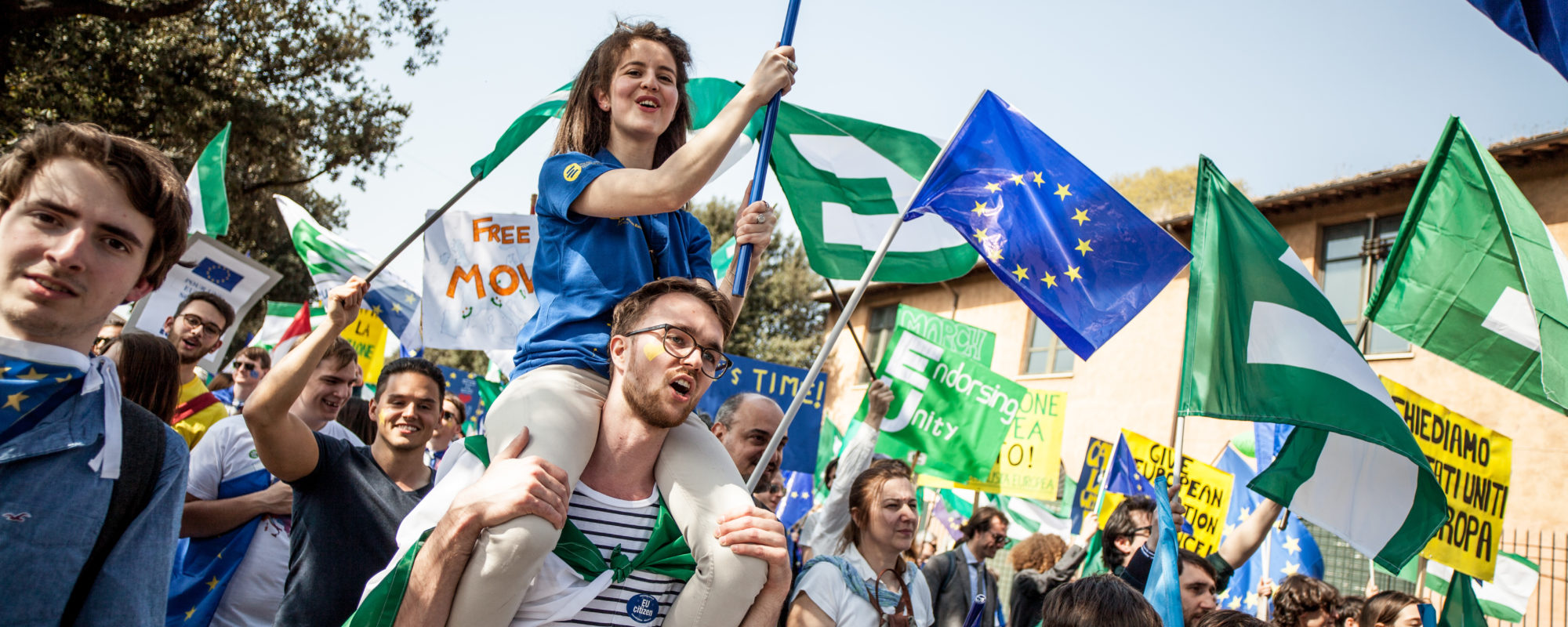Coalition Treaty between Social Democrats, Greens and Liberals in Germany published
Brussels, 26 November, 2021
Dear federalist friend, With the title “Dare to make more Progress – Alliance for freedom, justice and sustainability“, the representatives of the Sozial Demokratische Partei Deutschlands (SPD), BÜNDNIS 90/DIE GRÜNEN and Freien Demokraten (FDP) presented their Coalition Treaty on 24 November 2021, after around a month of negotiations. The 178-page Treaty is intended to form the basis for cooperation between the three parties, which want to build the federal government for the next four years.
The seventh of a total of 9 chapters deals with “Germany’s responsibility for Europe and the world.” As in view of inhabitants largest Member State, Germany should assume its special responsibility in a serving understanding for the EU as a whole. This means that German interests should be defined in the light of European interests, according to the three parties.
One of the most ambitious goals of the so-called “traffic light coalition” is the further development of the European Union in crucial areas: for example, the Conference on the Future of Europe should lead to a constitutional convention and to a further development into a European Federation, organized decentrally also according to the principles of subsidiarity and proportionality and based on the Charter of Fundamental Rights. “The Union of European Federalists very much welcomes the clear commitment of the coalition partners to the creation of a European Federation. The call for the creation of a European Federation is our core petition that we, together with our Sections, have been calling for since our foundation 75 years ago,” says Sandro GOZI, President of the UEF and MEP. “It seems that the coalition partners have read our position papers, as the coalition treaty contains further UEF positions, which one can find, summarized most recently in our Appeal “Our federal Europe – sovereign and democratic.“This Appeal has already been supported and signed by more than 500 high-ranking politicians and personalities and is still open for signatures. I invite the representatives of the parties of the coalition treaty but also the representatives of the other pro-European parties in the German Bundestag to sign the Appeal.”
Furthermore, the coalition partners intend to strengthen the role of the European Parliament, especially the right of legislative initiative. The right of legislative initiative has been requested by the UEF at the last Plenary of the Conference on the Future of Europe (CoFoE). The coalition treaty contains also the call of a European electoral law with strong Spitzenkandidaten and transnational lists. “A unified European electoral law with transnational lists will lead to the formation of real European parties” underlines Sandro GOZI. “The clear positioning in the coalition treaty is encouraging with regard to future negotiations in the Council. In the European Parliament, we are currently discussing the Report on the Electoral Law that UEF Vice-President and MEP Domènec RUIZ DEVESA has drafted as Rapporteur.”
Moreover, there is a positive particular focus on democracy and the rule of law in the coalition treaty. The European Commission is called upon to use and enforce existing rule of law instruments more consistently and in a timely manner. Liberal democracies are to be empowered to better fend off disinformation, fake news, campaigns, propaganda from as well as manipulation from within and outside the country. Unanimity in the Council should to be replaced by majority decisions, at least in foreign and security policy and the European External Action Service should be reformed and strengthened; a true EU foreign minister should replace the High Representative. Priority should be given to the Community method, but where necessary, progress is to be made only with individual Member States.
The calls and commitments towards a strong European Union and to European sovereignty in the coalition treaty of the Social Democrats, Greens and Liberals coincide in many points with the positions of the UEF. The goals are ambitious and promising. Germany can thus bring new momentum and new impetus to the necessary further deepening of the European Union. The coalition treaty has thus also raised hopes and expectations. The task now is to turn words into deeds.
Contact:
Anna Echterhoff
Secretary General

